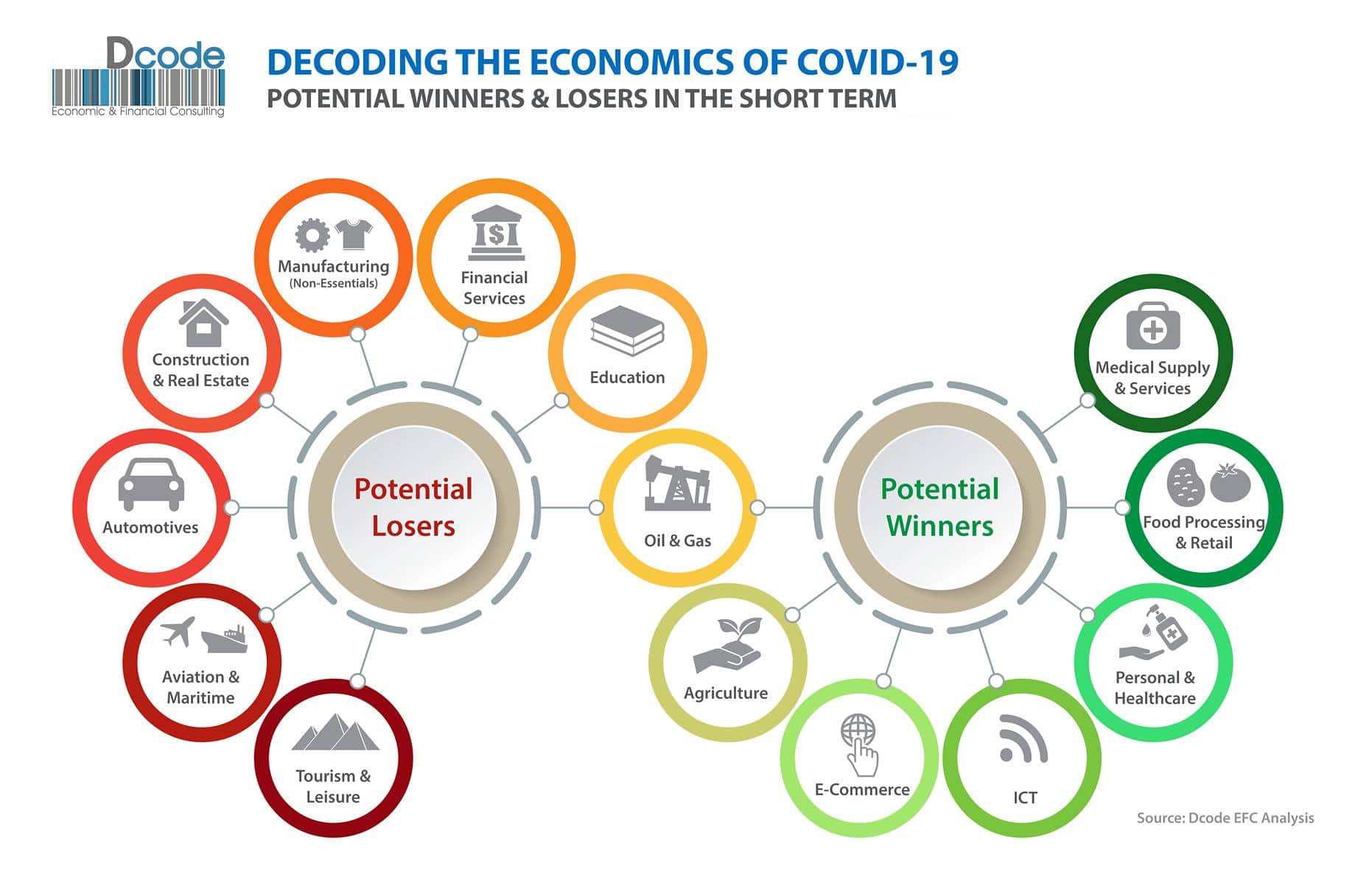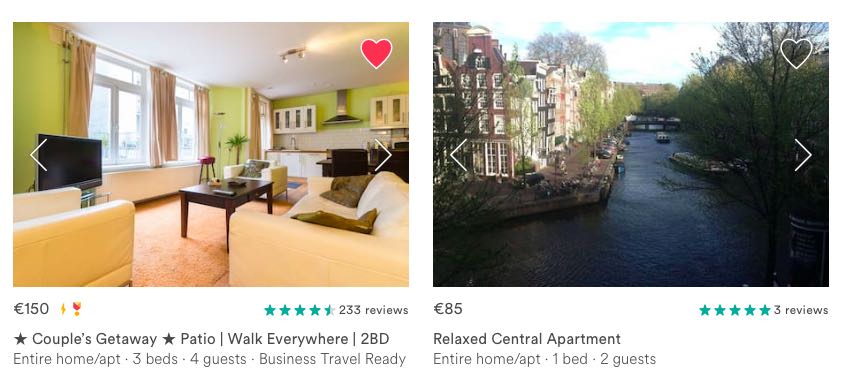Right now, the world is aching from Covid-19, whether you are in a city with strict lock-down policies, have a curfew, or have been given a choice to work from home. A reality that we cannot ignore is that the pandemic has hit the short-term rental business.
Most of you may have already seen this chart before:

Tourism and Leisure may be at the top of the list of potential losers, but not all is lost! There are several strategies we can implement to weather the storm to the best of our ability. These strategies were already shared on Optimizemybnb’s blog, and want to thank Lodgify for the opportunity to share them with you here.
The first thing is not to panic, I know things might be super tight right now, but hasty decisions are rarely the wisest. Let’s begin by looking at this period as a low season, what actions do you usually implement during low season? How can we adapt that to this event?
Do you have a pen and paper ready? Because here we go!
Strategy #1: Inform your guests of what you are doing

There’s already a lot of information circulating out there, most of it alarming and not soothing at all.
So, take a step forward, be proactive, reach out to your guests, and inform them of the additional actions you are taking to ensure they have a clean, safe place to stay.
Mention how you’re following the recommendations of your health authority for extra credibility. This will also help you confirm their booking, or in case they decide to cancel, free the dates for other guests who might be looking at listings just like yours.
Strategy #2: Don’t cancel
I spend 99.9% of my time immersed in the short-term rental world, mainly online, and during the last few weeks, I have seen a trend of hosts canceling reservations and then complaining about how bad things are. There was a case about a month ago where the host canceled after learning the guest was Chinese; he didn’t even bother to ask if the guest had been in China recently before canceling.
Whether you decide to welcome a guest or not is ultimately up to you, be aware of whether your decision is rational or based on fear.
There are always additional steps you can take to protect yourself: self-check-ins, wear N95 masks and gloves while cleaning your listing, open the windows to ventilate the place, etc.
Lodgify has a great list on how to protect yourself and your guests; you can download it here:
Strategy #3: Surprise them with additional gifts

Your guests are also concerned for their wellbeing, so adding a free N95 mask, antibacterial gel bottle, and gloves, will show them that you care as well.
Another nice touch is having a digital list of your favorite restaurants in the area offering home delivery. Yes, they can look it up on UberEats, but it is always nice to know your host cares.
Ultimately, if you took the time to get them the masks and create a short directory, chances are, you are a meticulous, thoughtful host.
Strategy #4: Reach out
Now, once you have focused on the reservations you already have, it is time to focus on getting more. It is important to note that local guests and domestic travelers might be your best shot right now. Why? Because people are not engaging in international or long-distance travel as much these days.
Having said this, there is a myriad of organizations that offer in-housing programs:
- Hospitals
- Universities
- Religious organizations
- Language schools
- Military bases, etc.
So, sit down and brainstorm! Then go online and start searching for those in your city, preferably, within a 30-minute radius from your listing, and reach out to them!
You can type a nice email, including pictures of the interior of your place, rates, etc. Make it easier for them to choose your place!
Strategy #5: Re-Optimize your listing
“When the fishermen can’t go to sea, they mend their nets.” This is an excellent opportunity for you to jump into your listing and start (re)working on it. We have to remember that short term rental is not a “set and forget” venture.
Some of the tweaks I recommend during low season are:
1. Decrease your nightly rate
This one is obvious, but I want you to lower the price by an additional 25%. Make it easy for the guest to choose your listing. I’m an Airbnb guest of 1,100 nights, and there’s so much competition. It’s even harder for me to choose because I know I can get an additional discount, and many hosts want to negotiate. Make my decision easy!
2. Update your physical space
Have the last 3 of 4 guests mentioned your funky shower head? Have you been meaning to add screen doors to the balcony, fix the creaking floors, do a deep clean? Unless you think the entire travel industry will go bankrupt, now’s the time to invest.
3. Increase flexibility
I know we all have specific rules when it comes to our rental spaces, but there are a few tweaks we can make to improve our chances of being booked.
- Decrease the minimum number of nights: Sometimes we set it up to 2 or 3 nights hoping to get more extended stays, but lowering it down to 1 might improve your chances of coming up in a search. Plus, one night is always better than no nights.
- Less restrictive cancellations: Having a strict or moderate cancellation policy can be a massive deterrent for guests. Consider making it more flexible. This can be seen as an act of good faith under the current circumstances.
- Allow pets: Some of the guests looking for a longer-term rental are traveling with their pets and typically have a hard time finding a place to stay. So, this could be an excellent point to consider.
4. Spruce up your Airbnb listing

You can even make some changes to your existing Airbnb listing to increase your rankings by changing your Airbnb title, updating your description, changing your cover photo, highlighting your reviews in your photos and updating all your settings, amenities, safety features, etc.
Have you already implemented some of these strategies? I would love to hear from you!
About the author:



